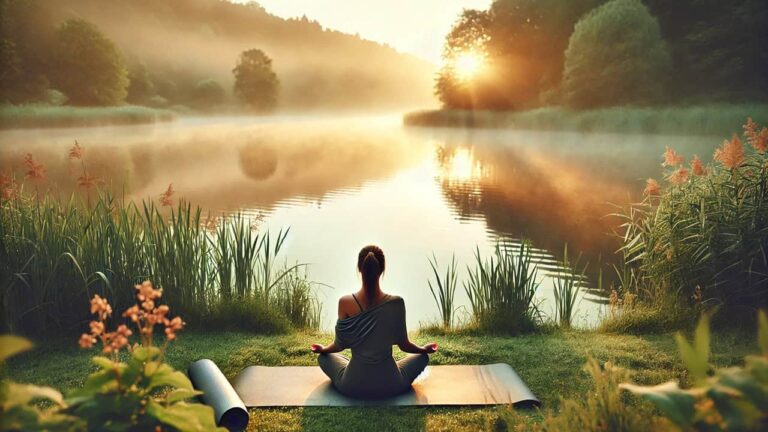How Nature Therapy Restores Inner Harmony
In today’s fast-paced world, where technology dominates our lives and stress often feels unrelenting, many people are turning to nature therapy as a way to restore balance and reconnect with their inner selves.
Nature therapy, also known as ecotherapy, involves intentional interactions with the natural environment to improve mental and physical well-being. This practice is rooted in the understanding that humans have an innate connection to nature, often referred to as biophilia. When nurtured, this connection has the power to bring calm, clarity, and a renewed sense of purpose.
If you’ve ever taken a walk in the woods or sat by the ocean and felt an almost inexplicable sense of peace, you’ve already experienced a taste of what nature therapy can offer.
The Science Behind Nature Therapy
Nature therapy isn’t just a feel-good trend; it’s backed by science. Numerous studies have shown that spending time in nature can significantly reduce stress, anxiety, and depression.
One groundbreaking study from Stanford University found that participants who walked in a natural setting for just 90 minutes experienced decreased activity in the part of the brain associated with rumination—a mental pattern linked to depression and anxiety.
How Does Nature Influence the Brain?
The natural environment affects us on multiple levels:
- Reduction in Cortisol Levels: Cortisol, the body’s primary stress hormone, tends to decrease when we spend time outdoors. This can lead to improved mood and lower blood pressure.
- Increased Production of Serotonin: Exposure to sunlight and fresh air stimulates serotonin production, a neurotransmitter that helps regulate mood and happiness.
- Enhanced Focus and Creativity: Studies have shown that being in nature improves attention spans and creative problem-solving skills, likely due to reduced mental fatigue.
How Nature Therapy Restores Inner Harmony
Inner harmony refers to a state of balance where your mind, body, and spirit are in alignment. Modern life often disrupts this balance with overstimulation, prolonged screen time, and the constant pressure to achieve more.
Nature therapy offers a pathway to recalibrate by immersing yourself in environments that foster peace and connection.
1. Reconnecting with Simplicity
Nature strips away distractions and complexities. Imagine walking barefoot on soft grass, feeling the warmth of the sun on your skin, or listening to the gentle rustle of leaves in the wind. These simple, sensory-rich experiences remind us of the beauty in simplicity, something that often gets lost in the chaos of daily life.
2. Mindfulness in Motion
One of the key elements of nature therapy is mindfulness. Whether you’re hiking in a forest or gardening in your backyard, being in nature encourages you to stay present. You’re less likely to dwell on past regrets or future worries when you’re focused on the patterns of tree bark or the sound of a babbling brook.
3. A Deeper Connection to the Self
Nature has a way of mirroring our inner world. The ebb and flow of waves, the cyclical nature of seasons, and the resilience of plants adapting to their environment often resonate deeply. These natural rhythms can serve as powerful reminders that, like nature, we, too, have the capacity to adapt, grow, and find balance.
Practical Ways to Incorporate Nature Therapy
Integrating nature therapy into your routine doesn’t require a remote cabin or a wilderness adventure. Even small, intentional interactions with nature can have a profound impact. Here are some practical ways to get started:
1. Daily Nature Walks
A 20-minute walk in a nearby park or green space can significantly boost your mood and energy levels. Leave your phone behind or switch it to airplane mode to fully immerse yourself in the experience.
2. Forest Bathing
Originating in Japan as Shinrin-yoku, forest bathing involves spending time in a wooded area, engaging all your senses to soak in the atmosphere. There’s no hiking goal or fitness target—just being present in the forest is the aim.
3. Create a Green Sanctuary at Home
If you can’t always escape to nature, bring it to you. Surround yourself with indoor plants, set up a small water feature, or dedicate a corner of your home to natural elements like stones, wood, and greenery.
4. Practice Earthing
Also known as grounding, earthing involves direct physical contact with the Earth’s surface, such as walking barefoot on grass, soil, or sand. This practice is believed to reduce inflammation, improve sleep, and promote a sense of calm.
5. Gardening for Growth
Tending to a garden, even a small one, can be immensely therapeutic. Planting seeds, nurturing growth, and witnessing the fruits of your labor offer a tangible sense of accomplishment and connection to the Earth.
Stories of Transformation Through Nature Therapy
To truly understand the power of nature therapy, it helps to hear real-life stories of transformation. Consider Emily, a corporate executive who struggled with chronic stress and burnout.
After committing to weekly hikes and practicing mindfulness in nature, she not only saw her stress levels plummet but also rediscovered her passion for painting—something she hadn’t done in years.
Then there’s James, a retired teacher coping with grief. By volunteering at a community garden, he found solace in nurturing plants and connecting with others who shared a love for the outdoors. Nature became a space where he could process his emotions and find healing.
The Ripple Effect of Nature Therapy
The benefits of nature therapy extend beyond the individual. When people feel more balanced and harmonious, they’re more likely to build positive relationships and contribute to their communities. Moreover, spending time in nature often fosters a deeper appreciation for the environment, inspiring actions to protect and preserve it for future generations.
Conclusion
Nature therapy is a gentle yet powerful tool for restoring inner harmony. It offers a reprieve from the noise of modern life and reconnects us to what truly matters. Whether it’s through a simple walk in the park, forest bathing, or gardening, the path to balance and peace is closer than you might think.
Take the first step today. Step outside, breathe deeply, and let nature guide you back to yourself.





